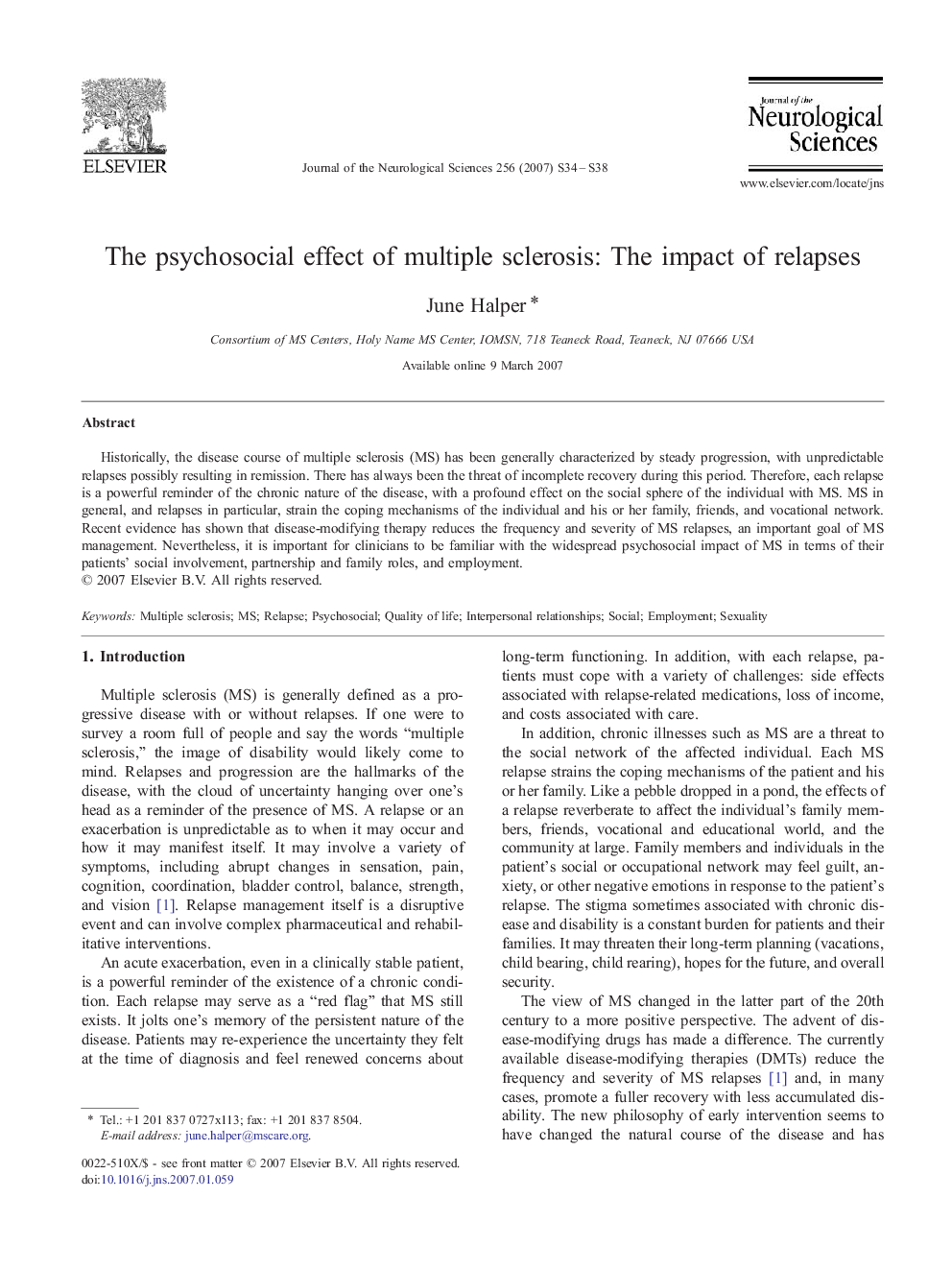| Article ID | Journal | Published Year | Pages | File Type |
|---|---|---|---|---|
| 1916362 | Journal of the Neurological Sciences | 2007 | 5 Pages |
Historically, the disease course of multiple sclerosis (MS) has been generally characterized by steady progression, with unpredictable relapses possibly resulting in remission. There has always been the threat of incomplete recovery during this period. Therefore, each relapse is a powerful reminder of the chronic nature of the disease, with a profound effect on the social sphere of the individual with MS. MS in general, and relapses in particular, strain the coping mechanisms of the individual and his or her family, friends, and vocational network. Recent evidence has shown that disease-modifying therapy reduces the frequency and severity of MS relapses, an important goal of MS management. Nevertheless, it is important for clinicians to be familiar with the widespread psychosocial impact of MS in terms of their patients' social involvement, partnership and family roles, and employment.
